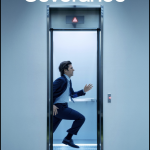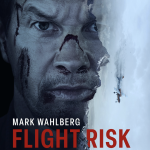More than any other biography, Robert Matzen’s “Mission: Jimmy Stewart and the Fight for Europe” examines the actor’s stint in the United States Army Air Corps during World War II. In addition to documenting his harrowing experiences during bombing raids, the book also examines the psychological toll sending young men to their deaths as Operations Officer of the 453rd Bomb Group had on the actor. And while he never spoke of his war experiences, his wife and other intimates witnessed the actor dealing with bouts of deep depression and sudden outbursts of anger. As with anyone having been in combat, Stewart, the man and the artist, was forever changed.
This begins to become evident in 1950 with the release of Anthony Mann’s “Winchester ’73,” the film that’s often cited as the starting point of the psychological western. More than simple oaters featuring purehearted gunslingers intent on maintaining law and order, this film and four others the actor and director collaborated on dealt with troubled men facing down their inner demons. Hounded by doubt, often out to set right some personal wrong, these movies brought depth and new life to the genre, while making Stewart one of the biggest box office draws in the country.
His character in “Winchester,” Lin McAdams, carries the weight of the world on his shoulders as he hunts down Dutch Henry Brown (Stephen McNally), a man who’s committed an unspeakable offense. McAdams is obsessed with bringing him to justice, his relentless pursuit threatening his already fragile state of mind as well as his physical well-being. The titular weapon is the movie’s MacGuffin, an object that changes hands many times over the course of the story, a seemingly cursed talisman that can only be controlled by McAdams once he becomes morally sound.
The Mann westerns, as well as the films he made with Alfred Hitchcock, gave us an intimate glimpse of the troubled actor. Through these roles, he was able to express some of the rage and confusion he was contending with. In a way, they served as an instrument for healing but also understanding, countless other WW II veterans seeing their own frustrations, doubts and anger expressed by the quintessential American actor. This is no more obvious than in a terrifying moment in which McAdams confront Dan Duryea’s Waco Johnny Dean in a saloon, the expression on the actor’s face as he batters his assailant one of barely suppressed rage. This is a man looking for an opportunity to let loose with the anger and pain he struggles to contain, and in this moment, we see Stewart in a light far removed with that of Jefferson Smith or any of his other less complex pre-war characters
Running a lean 92 minutes, Mann keeps the action moving, a memorable shooting contest, a tense siege, and one of the best gunfights in film history all playing out as McAdams’ quest unfolds. Buoyed by inspired performances from the two leads as well as Shelley Winters, Millard Mitchell, John McIntire, Will Geer and the always reliable scene stealer, Duryea, the talent in front of the camera helps elevate the material. Rock Hudson and Tony Curtis (billed as Anthony Curtis) can also be spotted in small roles.
The Criterion Collection edition features a 4K restoration that proves astonishing. I doubt the film has ever looked as good as it does here. Also included is the Lux Radio Theater adaptation, an insightful essay from critic Imogen Sara Smith, as well as a documentary on Mann. However, the highlight is a separate audio track with historian Paul Lindenschmidt and Stewart. While the critic’s questions are, at times, far too simplistic, hearing the legendary actor offer up anecdotes about working with Winters and Duryea, talk about how his stunt double Ted Mapes choreographed the film’s fights and relate his working relationship with his horse Pie are invaluable to any film aficionado. As always, Criterion sets the gold standard in the arena of physical media.




